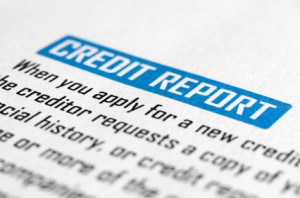Repairing Your Credit After Divorce

Mark went through what he calls a very “modern day divorce” last year when he and his ex-wife ended up dividing more marital debts than marital assets in their divorce settlement. The couple closed two joint credit cards, both with high outstanding balances and a record of missed payments. They also sold their home in a short sale, meaning they were able to get out of their underwater mortgage, but because the house sold for less than what they owed, there was no money from the sale to go towards paying down debts.
Mark checked his credit report and could see that his credit has taken a big hit since the divorce. Now that the dust has settled, however, Mark wants to know what he can do to start repairing his credit.
Sound familiar?
Divorce can take a heavy toll on a person’s emotions and personal well-being, but it is the financial hardships of divorce that sometime take even longer to overcome. Missed payments, high credit card balances, and matters like short sale real estate transactions can negatively impact credit for both parties involved. At its worst, the financial fallout from a divorce can result in deficiency judgments, foreclosures, and bankruptcies — all of which can have an even more damaging effect on credit.
Where to begin the credit repair process? Here are some suggestions:
Learn from Your Credit Report: It was wise of you to pull your credit report to see what negative information has been reported. First of all, is everything correct? Are there any creditors listed that you were not aware you owed money to, or anything else that seems unusual? Can any negative information be removed? Let’s say you ran into trouble with credit cards years ago, eventually paid the card off in full, but the negative information is still there. If seven years (or close to it) has passed, you can request the creditor remove this negative information from your report.
If you ended up declaring bankruptcy after divorce, it will take patience and time to get this information off your report. Chapter 13 bankruptcy is deleted seven years from the filing date because it requires at least a partial repayment of the debts owed. Chapter 7 bankruptcy is deleted 10 years from the filing date because none of the debt is repaid.
Repaying Joint Credit Cards: It’s a generally a good idea to close joint credit cards during a divorce, though doing so may have actually ding your credit score due to loss of available credit. Paying this debt can be tricky, since you are relying on your spouse to pay her share on time (if this is the arrangement your divorce settlement calls for). Credit card companies can be notoriously difficult to deal with, but as a preemptive measure, you may want to send in a copy of the portion of your divorce settlement outlining how this debt is to be handled just in case your former spouse stops payment.
Recovering From a Short Sale: According to FICO, the widely-used credit scoring system, a short sale can result in as much as a 200-point drop in your credit score. However, while record of the short sale remains on your credit report for seven to 10 years, the good news is that the impact on your score lessens each year; this is also true for foreclosure.
Speeding Up Credit Repair: To hasten credit repair, the most critical step toward is to aggressively pay down your credit card and other outstanding balances, in addition to addressing all your incoming bills on time, every time. If you and your former spouse are both paying on the closed credit cards, could you work out a plan to both pay more than minimum? Her credit score likely suffered similar dings, so perhaps she is also looking for ways to improve her financial picture.
Set up automatic payments and pay far more than the minimum each pay period if you hope for a steady recovery. If some payments are simply too much, or have gone unpaid for so long that hefty interest and fees have built up, seek the help of a nonprofit credit counseling for guidance on how to work with creditors to consolidate or reduce payments.
Finally, be prepared to have a little patience. You should start to see some improvements in your score with a steady history of on-time payments, but a full recovery could take anywhere from three to seven years.

